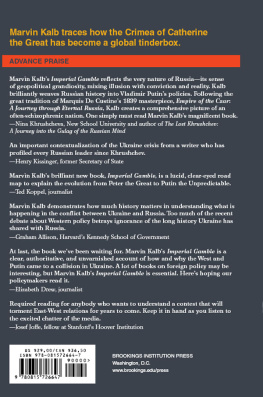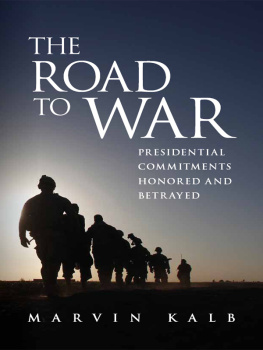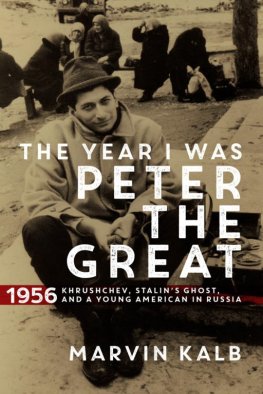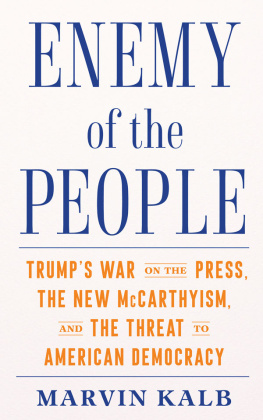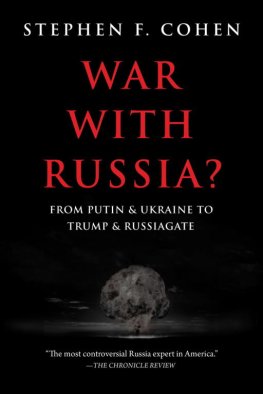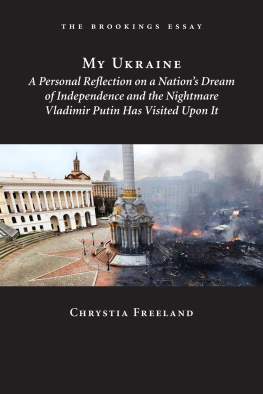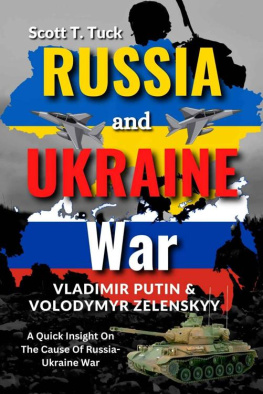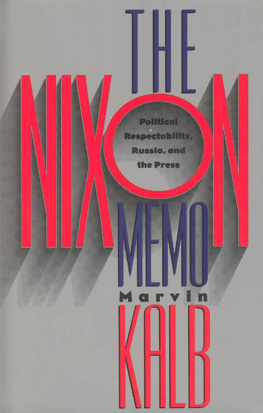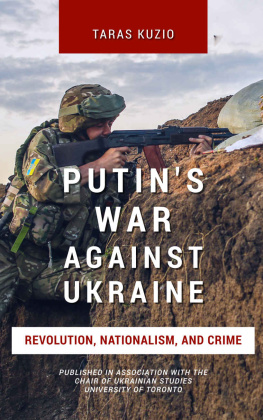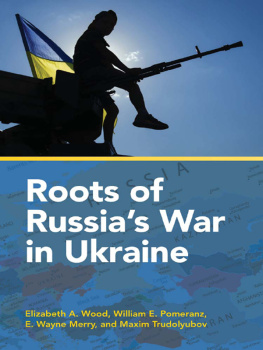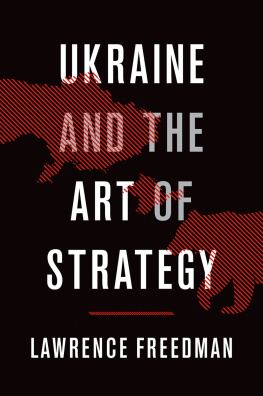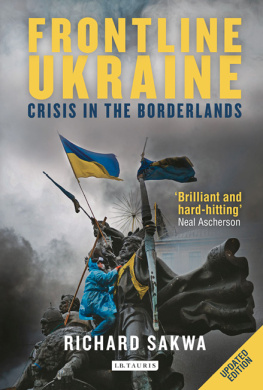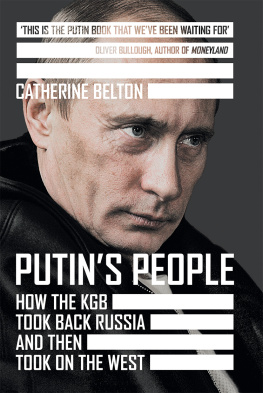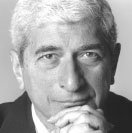Kalb originally set out to become a Russian history professor. But just short of acquiring his doctorate he spent a year in Moscow as a State Department press officer and translator. On his return to the United States, Kalb began teaching at Harvard and was invited by Murrow to join CBS. Today, more than a half century later, Kalb has again returned to familiar territory in writing Imperial Gamble: Putin, Ukraine, and the New Cold War.
Acknowledgments
THE IDEA FOR THIS BOOK came from Valentina Kalk, director of the Brookings Institution Press, and I am grateful to her and her colleagues for their encouragement and support. I enjoyed the project, which brought me back to an earlier time in my life when I covered Russia, Ukraine, and the rest of the Soviet Union for CBS News during the cold war. Most especially, I wish to thank Janet Walker, Bill Finan, Yelba Quinn, Rebecca Campany, and Carrie Engel; they were always there at the press when I needed them. John Felton, not for the first time, provided invaluable editorial advice and suggestions. He is a proven pro.
My friend Andrew Glass, a journalist of the highest quality, helped me, first, by listening to me and offering fresh ideas and, second, by carefully editing the whole manuscript. He again stretched the definition of friendship.
A small team of research assistants also pitched in and helped, none more so than Vassilis Coutifaris, whose technological wizardry continues to impress me and whose friendship I cherish. At the Pulitzer Center, where I currently hang my hat, Rebecca Gibian, Alyssa Howard, and Rachel Bolte each helped with research for a time, and Jin Ding displayed her technical artistry on an almost daily basis. Jon and Kem Sawyer, Nathalie Applewhite, Ann Peters, and Tom Huntley were more helpful than they probably realize. Thanks to them all.
As always, I am grateful to Michael Freedman, Heather Date, Robert Ludwig, and Lindsay Underwood for their advice and kindness, as well as to all other colleagues on the Kalb Report, a program I've hosted at the National Press Club for more than twenty years. Their friendship means so much to me.
Though they did not know it, I also benefited enormously from the work and guidance of the many scholars and officials associated with Brookings, Carnegie, the Peterson Institute, and the many centers of public policy inquiry in the Washington, D.C., area. They know their stuff, and, happily, they are ready to share it.
From day one of this project, no one has been a more constant source of encouragement and enlightenment than my brother, Bernard, a journalist of unparalleled honesty, dignity, and objectivity. His flaming curiosity has always inspired me; he ought to be a model for anyone calling himself or herself a reporter or, indeed, a citizen of a civilized world. He is the taller half of a twosome: his wife, Phyllis, is just as impressive and helpful.
Finally, in so many ways, I am a very lucky guy. I have a brilliant, sympathetic wife, Mady, my buddy for the past fifty-seven years; two exceptionally loving daughters, Deborah and Judith; their smart and responsible husbands, David and Alex; and their childrenmy grandson, Aaron, and granddaughter, Eloise, the lights of my life.
Shine onyou deserve a free and open world.

CHAPTER 1
Crimea: From Catherine the Great to Vladimir the Gambler
He is creating his own realityhis own sort of world.
JOHN KERRY
Putin is, in many ways, I think, delusional about this.
MADELEINE ALBRIGHT
IN CASE YOU MISSED IT, history is back, in a dizzying mix of Byzantine deception and Cossack adventurism. Some, with playful wit, have called it the Soviet spring.
In late February 2014, shortly after the Sochi Winter Olympics, which succeeded in projecting the image of a sleek modern Russia, President Vladimir Putin suddenly sent his army, masked and minus insignia, into the Ukrainian peninsula of Crimea, which sits in the blue waters of the Black Sea. Save in the Kremlin, everyone, everywhere, seemed surprised, even shocked. In Western chanceries, protests were drafted and sanctions threatened. Within days, Crimea was occupied, and within weeks it was the Potemkin-like backdrop for a faux referendum, providing the legal pretext for its swift annexation by Russia. Barely a shot had been fired. For the first time in decades, a European border had been crossed, a nation's sovereignty violated, and diplomats and political leaders began to wonder whether they were witnessing the rebirth of the cold war.
This takeover immediately raised questions about Russian policy and intentions. Among the most pressing:
Is Crimea just the beginning of a new expansionist policy for Russia?
Will Russian-speaking eastern Ukraine be next, or will it be the odd sliver of Moldova called Transnistria?
Or, worst of all, is it possible that Russia will test the cohesion of NATO by invading Latvia or Estonia on the Baltic?
It all came down to the decisions of one man: Putin, a one-time KGB lieutenant colonelcunning, manipulative, and ultranationalisticwho was president of a severely vulnerable Russia and determined to right the wrongs he saw in postcold war Europe. Another question quickly arose: Was Putin representative of Russia's rising political elite, or was he someone special? Put another way, had there been no Putin, would Russia still have annexed Crimea and triggered the subsequent crisis in eastern Ukraine? We shall never know for certain. Russian history does march to its own libretto, orchestrated in the Kremlin, where one person generally calls the tune. Crimea was juicy, available, low-hanging fruit. If it were not Putin, then another Russian leader might very well have swooped in and snapped it up, when he needed an easy victory. To make sense of the current Ukrainian crisis, one must first make sense of Putin and Russia's long and often troubled history.
Putin on a Couch
Searching for explanations, expertsRussian and non-Russian alikehave put Putin on the kind of couch often found in a psychiatrist's office. A number thought his adventure in Crimea proved he had lost his diplomatic marbles. German chancellor Angela Merkel confided to President Barack Obama that in her judgment, Putin was in another world. Or, as Secretary of State John Kerry observed: He's creating his own realityhis own sort of world. It doesn't make any sense, former secretary of state Madeleine Albright confessed. Putin is, in many ways, I think, delusional about this. And, if Putin was not in another world, or creating his own reality, or delusional, he was, according to Brent Scowcroft, who served as national security adviser under President George H. W. Bush, a person full of venom, suggesting he could not think rationally about Ukraine.

